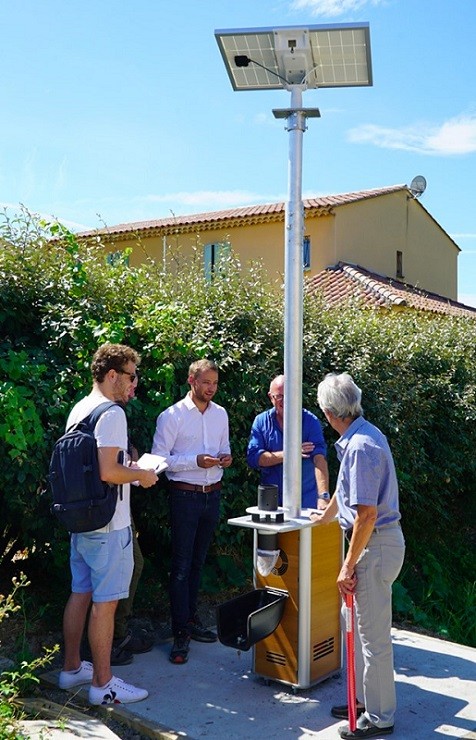The town of Carpentras is equipping itself with 11 connected anti-mosquito stations, and according to the reactions on the town’s Facebook page, the residents seem to welcome the news with enthusiasm.
Over the past 4 years, health authorities and residents of Vaucluse have had no choice but to witness the proliferation of the tiger mosquito in the region. The department is entirely colonized, including the town of Carpentras.
Beyond the issue of comfort, it’s a genuine public health concern because the tiger mosquito is a vector of serious viral diseases such as dengue, chikungunya, and even the Zika virus. Faced with the necessity to combat the tiger mosquito, the town of Carpentras decided to take action.

The usual large-scale mosquito control techniques generally involve dispersing neurotoxic chemical products in large quantities without precise selectivity regarding the targeted insect. The impacts of these sprays and fumigations on biodiversity are catastrophic, but these solutions were, up to this point, the only ones proving effective over large areas.
The town of Carpentras preferred to shift towards an ecological solution, selective (capturing only the female mosquito that bites) and non-toxic for living beings.
The La Provence newspaper dedicates an article to the news in its August 9 edition.
Qista has thus installed 11 mosquito traps around the main water retention ponds to limit the insect’s proliferation. The innovation of the Qista solution is that each station is connected to ensure statistical monitoring of captures and effectiveness.
For greater convenience, the anti-mosquito traps installed in Carpentras are entirely self-sustaining as they are powered by solar panels. They are also protected against acts of vandalism (anti-intrusion and anti-graffiti).